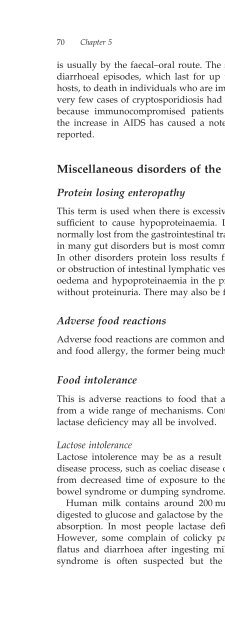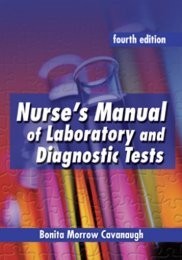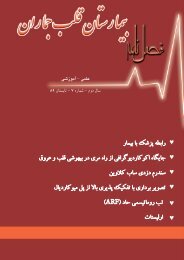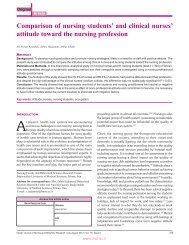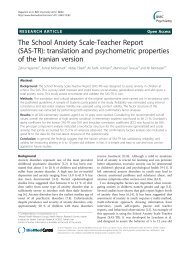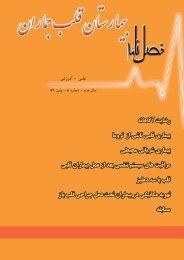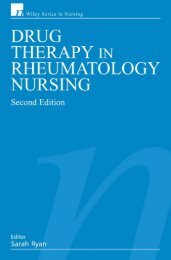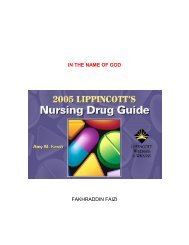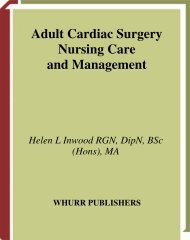Gastrointestinal Nursing.pdf
Gastrointestinal Nursing.pdf
Gastrointestinal Nursing.pdf
You also want an ePaper? Increase the reach of your titles
YUMPU automatically turns print PDFs into web optimized ePapers that Google loves.
70 Chapter 5is usually by the faecal–oral route. The severity of the infection ranges fromdiarrhoeal episodes, which last for up to four weeks in immunocompetenthosts, to death in individuals who are immunocompromised. Before the 1980svery few cases of cryptosporidiosis had been recorded in humans. However,because immunocompromised patients are susceptible to Cryptosporidium,the increase in AIDS has caused a noteworthy rise in the number of casesreported.Miscellaneous disorders of the small intestineProtein losing enteropathyThis term is used when there is excessive loss of protein into the gut lumen,sufficient to cause hypoproteinaemia. Less than 10% of plasma protein isnormally lost from the gastrointestinal tract. Protein-losing enteropathy occursin many gut disorders but is most common in those where ulceration occurs.In other disorders protein loss results from increased mucosal permeabilityor obstruction of intestinal lymphatic vessels. Patients present with peripheraloedema and hypoproteinaemia in the presence of normal liver function andwithout proteinuria. There may also be features of the underlying cause.Adverse food reactionsAdverse food reactions are common and are subdivided into food intoleranceand food allergy, the former being much more common.Food intoleranceThis is adverse reactions to food that are not immune-mediated and resultfrom a wide range of mechanisms. Contaminants in food, preservatives andlactase deficiency may all be involved.Lactose intoleranceLactose intolerence may be as a result of lactase deficiency secondary to adisease process, such as coeliac disease or Crohn’s disease. It may also resultfrom decreased time of exposure to the intestinal mucosa, such as in shortbowel syndrome or dumping syndrome.Human milk contains around 200 mmol/l of lactose, which is normallydigested to glucose and galactose by the brush border enzyme lactase prior toabsorption. In most people lactase deficiency is completely asymptomatic.However, some complain of colicky pain, abdominal distension, increasedflatus and diarrhoea after ingesting milk or milk products. Irritable bowelsyndrome is often suspected but the diagnosis is suggested by clinical


